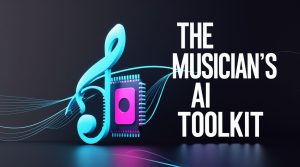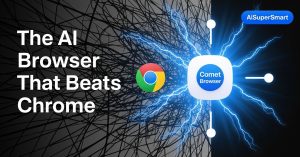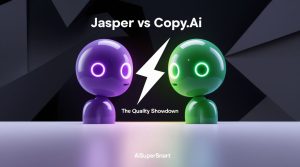In a surprising and refreshing twist to the usual tech hiring story, Cognizant Technology Solutions—one of the world’s largest IT giants—has declared that you don’t need a computer science degree to land a tech job anymore. Yes, you read that right. Even a liberal arts degree could be your golden ticket into the AI-driven world of technology.
Cognizant’s CEO, Ravi Kumar S, is on a mission to rewrite how the tech industry sees talent. In an interview with Fortune, Kumar explained that the arrival of Artificial Intelligence isn’t about replacing people—it’s about empowering them. “AI is an amplifier of human potential. It’s not a displacement strategy,” he said. And that one line might just change how millions of students and job seekers think about their careers in tech.
A Big Shake-Up in How Tech Hires
For decades, the IT industry has been laser-focused on STEM graduates—those with degrees in science, technology, engineering, or mathematics. But Cognizant is flipping the script. The company is actively recruiting school graduates, liberal arts majors, and even students from community colleges.
“So many companies have a pyramid with the bottom where school graduates are,” Kumar explained. “That pyramid is going to be broader and shorter, and the path to expertise is going to be faster. I can take a school graduate and give them the tooling so they can actually punch above their weight.”
That’s a radical idea in an industry that once demanded lines of code before lines of poetry. Cognizant is proving that the future of AI isn’t just for coders—it’s for communicators, thinkers, and creators too.
From Code to Creativity
When asked why Cognizant is betting big on liberal arts students, Kumar had a simple answer: because they think differently. He believes the next era of AI success will rely as much on imagination and empathy as on algorithms.
“There is an equitable distribution of problem solvers and problem finders… anthropologists, sociologists, psychologists, journalists; people who can be more purposeful problem finders,” he said.
In other words, AI can find answers—but humans must ask the right questions. That’s where liberal arts graduates come in. They’re trained to analyze society, culture, and human behavior—skills that are becoming priceless as AI systems learn to understand context, ethics, and emotion.
It’s a bold statement in a world obsessed with automation, but it reflects a bigger truth: machines can process data, but they can’t dream, empathize, or challenge assumptions like humans do.
Related Posts
AI as a Job Creator—Not a Job Killer
While many fear AI will wipe out jobs, Cognizant is telling a different story. Kumar insists that AI is creating new kinds of work. “AI is expertise at your fingertips,” he said. “If education systems adapt, we will have a productivity bump. The last time the productivity bump happened was in the Internet revolution. After that, productivity has been flat.”
The company’s move toward hiring non-STEM talent shows confidence that the human side of innovation is not going anywhere. Instead, Cognizant wants to blend the analytical and the emotional, the coder and the creator, into one powerful workforce.
A Massive Hiring Drive in 2025
Cognizant isn’t just talking—it’s taking action. As of October 2025, the company has confirmed a record-breaking hiring push, recruiting thousands of school graduates and liberal arts majors around the world. In India alone, it plans to hire around 20,000 freshers, more than double last year’s intake.

This hiring spree will strengthen Cognizant’s rapidly expanding AI and managed services business. The company says its new workforce model will be “broader and shorter”—meaning more entry-level hires, faster training, and quicker career growth.
Apprenticeship programs are already being rolled out across 30 states, offering young professionals hands-on experience with AI tools and real-world problem-solving. It’s a sign that the company wants to build an inclusive tech ecosystem, where opportunity isn’t limited to those with expensive STEM degrees.
Building “Agentic AI” and Context Engineers
Cognizant’s transformation goes beyond hiring. Earlier this year, the firm launched a new initiative to industrialize what it calls “agentic AI”—a new approach to deploying AI agents that can operate across enterprises. The company plans to hire 1,000 context engineers over the next year to help integrate these intelligent agents into real-world business operations.
These “context engineers” won’t just write code—they’ll understand people, industries, and the nuanced challenges companies face. And that’s exactly where liberal arts graduates can shine, bridging the gap between human understanding and machine precision.
The Education System Needs to Catch Up
But Kumar also believes schools and universities must evolve if they want to prepare students for the AI era. “AI is expertise at your fingertips,” he said. “Applying intelligence is the new asymmetry.”
He encourages students to break traditional academic boundaries—mixing history with computation, or biology with data modeling. In his view, the winners of tomorrow will be those who can combine creativity and curiosity with technical fluency.
It’s a wake-up call to education systems still stuck in the past. As AI becomes more accessible, what truly matters is how people apply knowledge, not just memorize it.
The Human Edge in an AI World
Kumar’s vision reflects a broader shift happening across industries: as AI takes over repetitive and analytical tasks, human qualities—like creativity, empathy, and critical thinking—are becoming the most valuable skills of all.
That’s why Cognizant’s move to welcome liberal arts graduates isn’t just a hiring strategy—it’s a statement about the kind of future we want to build. A future where technology doesn’t replace humans but amplifies their best qualities.
And perhaps, it’s also a reminder that the next big tech breakthrough won’t come from a machine—it’ll come from the human mind guiding it.
Global Ripple Effect
Cognizant’s bold step could inspire other tech giants to follow suit. As companies around the world scramble to integrate AI into their operations, there’s growing recognition that innovation isn’t just about coding speed—it’s about understanding people.
The hiring of liberal arts students, once seen as a long shot, could soon become a global trend. After all, in an AI-powered world, the ability to think critically, communicate clearly, and understand human needs might just be the most “technical” skill of all.
The Takeaway
Cognizant’s 2025 hiring strategy sends a powerful message: AI isn’t taking jobs—it’s transforming them. The company’s expansion into liberal arts and non-STEM hiring proves that creativity and curiosity are just as essential as coding and computation.
As AI continues to evolve, it’s not the degree that will define success—but the mindset. And in this new era of work, where machines handle logic and humans handle meaning, that liberal arts degree might just make you the most valuable person in the room.
So, if you’ve ever been told you need a tech degree to join the digital revolution—Cognizant just proved them wrong.





